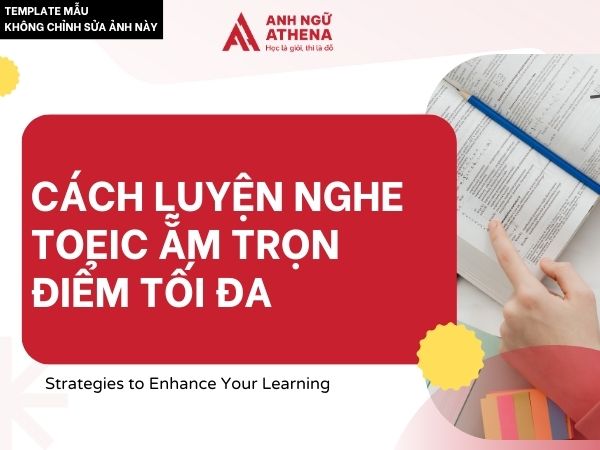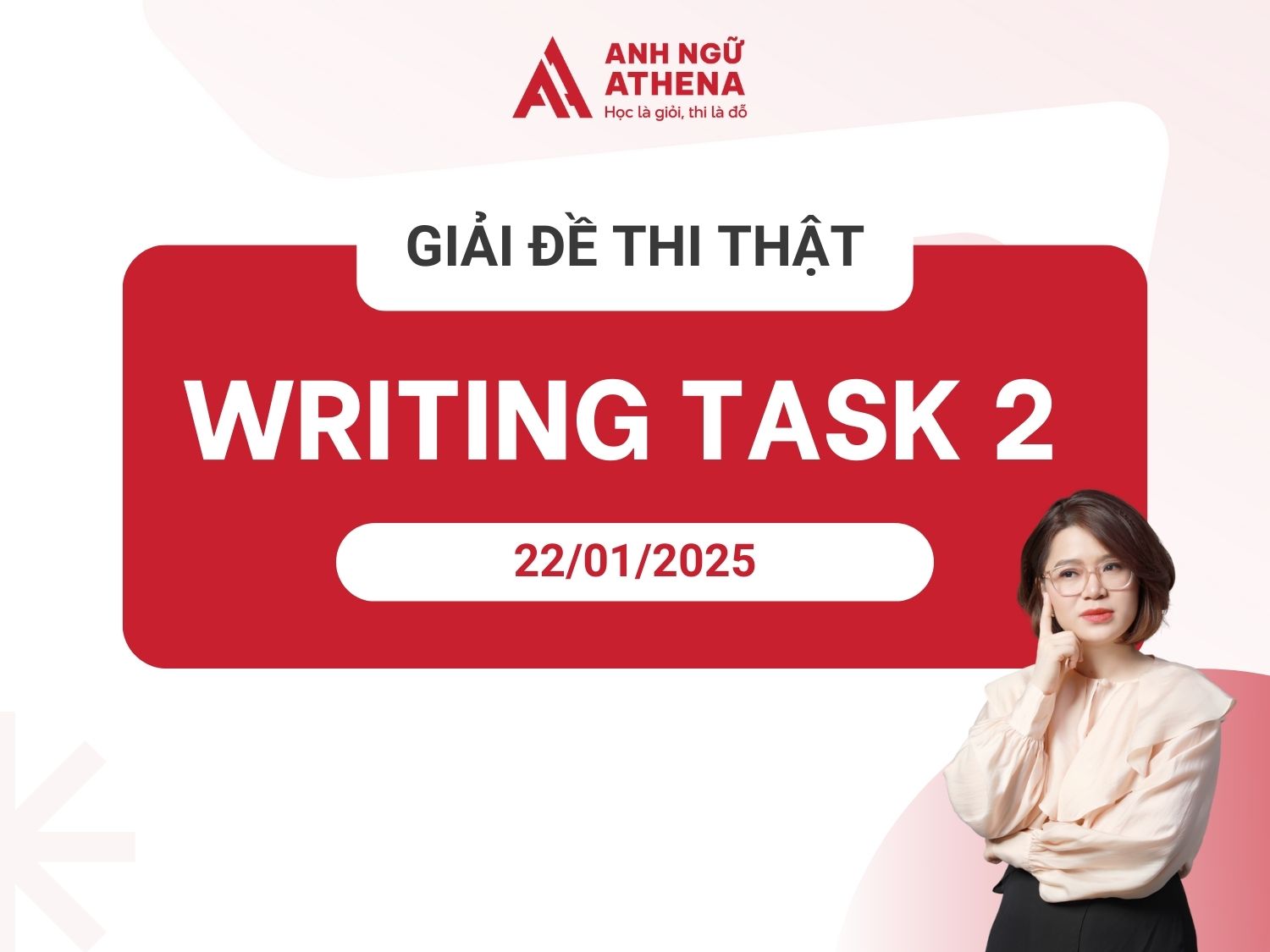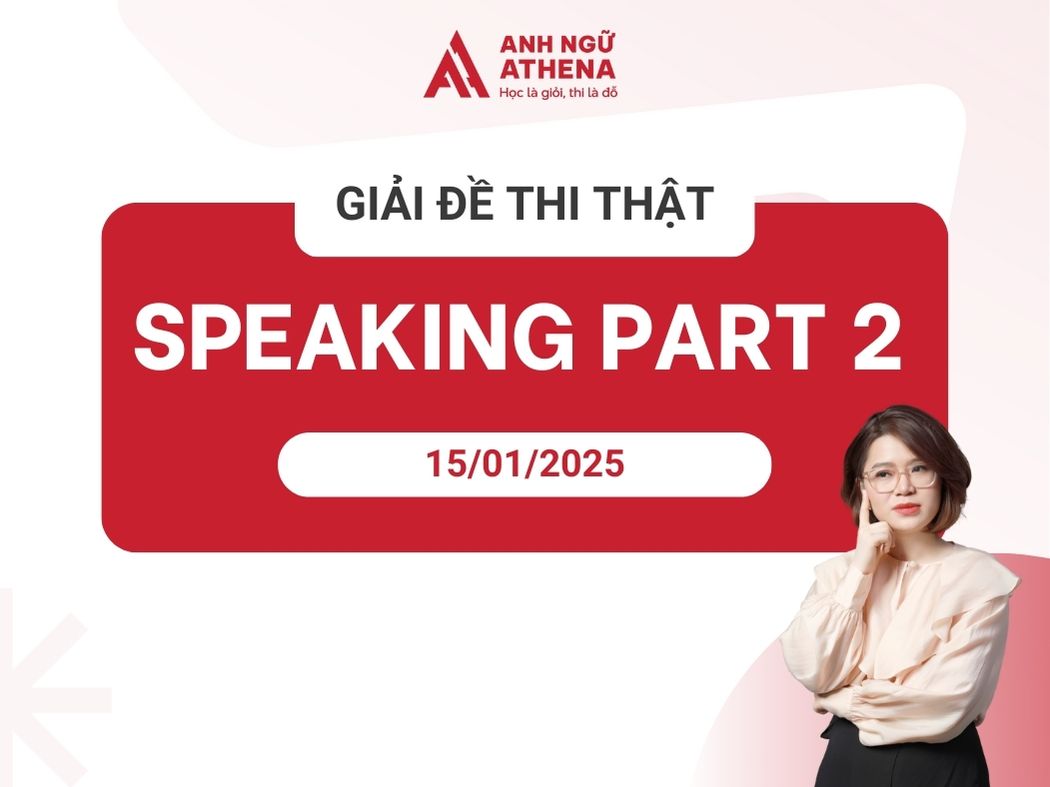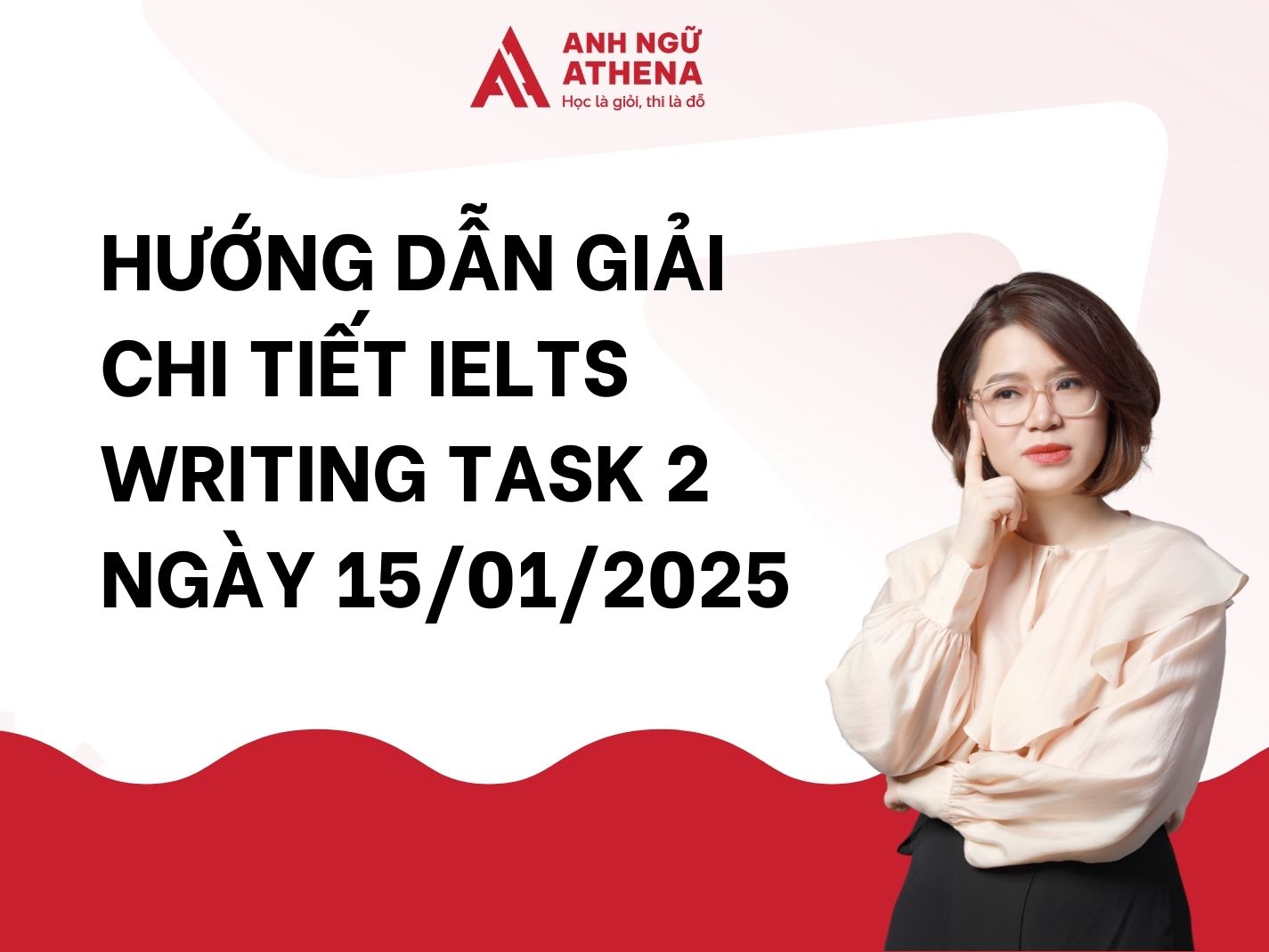Câu điều kiện là một trong những ngữ pháp phổ biến và cực kỳ quan trọng trong Tiếng Anh, xuyên suốt chương trình học THCS, THPT và bài thi IELTS. Cùng Anh ngữ Athena nắm được cấu trú, cách dùng cũng như bài tập câu điều kiện loại 1,2,3 kèm lời giải chi tiết.
 Định nghĩa câu điều kiện
Định nghĩa câu điều kiện
Câu điều kiện (Conditional sentences) dùng để diễn tả một sự việc sẽ xảy ra khi một điều kiện cụ thể xảy ra.
Ví dụ:
If I won the lottery, I would travel the world. (Nếu tôi trúng xổ số, tôi sẽ đi du lịch khắp thế giới.)
Cấu trúc của câu điều kiện bao gồm hai mệnh đề:
| Mệnh đề điều kiện (If clause), | Mệnh đề chính (main clause) |
| If it rains tomorrow, (Nếu ngày mai trời mưa,) | I will stay indoors and cozy up with a good book. (Tôi sẽ ở trong nhà và thư giãn với một cuốn sách hay.) |
| If I wake up early, (Nếu tôi dậy sớm,) | I will go for a refreshing morning jog before starting my day. (Tôi sẽ đi chạy buổi sáng để có một buổi tập thể dục sảng khoái trước khi bắt đầu ngày mới.) |

Định nghĩa câu điều kiện
Các loại câu điều kiện

Các loại câu điều kiện
2.1. Câu điều kiện loại 0
Câu điều kiện loại 0 diễn tả sự thật hiển nhiên, thực tế mà không có sự biến đổi hay ảnh hưởng từ các yếu tố khác.

| Câu điều kiện loại 0 | Đảo ngữ câu điều kiện | |
| Công thức | If + S + V (s, es), S + V (s, es) | Should + S + V-inf, S + V (s, es) |
| Ví dụ | If the sun shines, I will go for a walk in the park. (Nếu trời nắng, tôi sẽ đi dạo trong công viên.) | Should the sun shine, I will go for a walk in the park. (Nếu trời nắng, tôi sẽ đi dạo trong công viên.) |
2.2. Câu điều kiện loại 1
Câu điều kiện loại 1 được sử dụng để diễn tả một điều kiện có khả năng xảy ra trong hiện tại hoặc tương lai và kết quả của nó.

| Câu điều kiện loại 1 | Đảo ngữ câu điều kiện | |
| Công thức | If + S + V (s, es), S + will/may/should/can… + V-inf | Should + S + V-inf, S + will/may/should/can… + V-inf |
| Ví dụ | If she asks for help, I will gladly assist her. (Nếu cô ấy yêu cầu giúp đỡ, tôi sẽ vui lòng hỗ trợ.) | Should she ask for help, I will gladly assist her. (Nếu cô ấy yêu cầu giúp đỡ, tôi sẽ vui lòng hỗ trợ.) |
2.3. Câu điều kiện loại 2
Câu điều kiện loại 2 được sử dụng để diễn tả một điều kiện không có thật hoặc không khả thi trong hiện tại.

| Câu điều kiện loại 2 | Đảo ngữ câu điều kiện | |
| Công thức | If + S + V-ed, S + would/might/could… + V-inf | Were + S + V-to, S + would/might/could… + V-inf |
| Ví dụ | If he finished his homework early, he would have more free time to relax. (Nếu anh ấy hoàn thành bài tập về nhà sớm, anh ấy sẽ có nhiều thời gian rảnh hơn để thư giãn.) | Were he to finish his homework early, he would have more free time to relax. (Nếu anh ấy hoàn thành bài tập về nhà sớm, anh ấy sẽ có nhiều thời gian rảnh hơn để thư giãn.) |
2.4. Câu điều kiện loại 3
Câu điều kiện loại 3 được sử dụng để diễn tả một điều kiện không có thật trong quá khứ và những hậu quả không thật mà có thể đã xảy ra nếu điều kiện đó đã được thỏa mãn.

| Câu điều kiện loại 3 | Đảo ngữ câu điều kiện | |
| Công thức | If + S + had + PII, S + would/might/could… + have +PII. | Had + S + PII, S + would/might/could… + have + PII. |
| Ví dụ | If she had studied harder, she would have passed the exam. (Nếu cô ấy học chăm chỉ hơn, cô ấy đã qua được bài kiểm tra.) | Were he to finish his homework early, he would have more free time to relax. (Nếu anh ấy hoàn thành bài tập về nhà sớm, anh ấy sẽ có nhiều thời gian rảnh hơn để thư giãn.) |
2.5. Câu điều kiện hỗn hợp
Câu điều kiện hỗn hợp được sử dụng để diễn tả một điều kiện ngược với quá khứ, trong đó tác động của quá khứ vẫn còn ảnh hưởng đến hiện tại, do đó điều kiện đó sẽ ước ngược với hiện tại.

| Câu điều kiện hỗn hợp | |
| Công thức | If + S + had + PII, S + would (could/ should/ might) + V + now |
| Ví dụ | If she had practiced more, she would be a skilled pianist by now. (Nếu cô ấy đã luyện tập nhiều hơn, bây giờ cô ấy sẽ là một nghệ sĩ piano tài năng.) "If she had practiced more" là mệnh đề điều kiện trong quá khứ không thực tế. Câu diễn tả rằng cô ấy không thực sự đã luyện tập đủ nhiều trong quá khứ. "She would be a skilled pianist by now" là kết quả được ước ngược từ điều kiện trong quá khứ. Câu diễn tả rằng nếu cô ấy đã luyện tập nhiều hơn, kết quả hiện tại sẽ là cô ấy trở thành một người chơi piano giỏi. Tóm lại, câu này diễn tả rằng nếu cô ấy đã luyện tập nhiều hơn trong quá khứ, hiện tại cô ấy đã trở thành một người chơi piano giỏi. Tuy nhiên, điều kiện trong quá khứ không xảy ra, vì vậy kết quả không thật. |
Những cách khác để diễn đạt câu điều kiện
- Unless = If….not (Trừ phi, nếu…không)
Ví dụ: If you don’t work hard, you can’t earn enough money for your living.
= Unless you work hard, you can’t earn enough money for your living.
(Nếu bạn không làm việc chăm chỉ, bạn không thể có đủ tiền để trang trải cuộc sống.)
- Suppose / Supposing (giả sử như), in case (trong trường hợp), even if (ngay cả khi, cho dù), as long as, so long as, provided (that), on condition (that) (miễn là, với điều kiện là)
Ví dụ: Suppose the news is true, what will you do? (Giả sử tin tức là đúng, bạn sẽ làm gì?)
I’ll change my decision provided that you accept my offer. (Tôi sẽ thay đổi quyết định của mình miễn là bạn chấp nhận đề nghị của tôi.)
In case I forget, please remind me of my promise. (Trong trường hợp tôi quên, hãy nhắc nhở tôi về lời hứa của mình.)
- Without (Không có)
Ví dụ: Without water, life wouldn’t exist.
= If there were no water, life wouldn’t exist.
(Nếu không có nước, sự sống sẽ không tồn tại.)
Bài tập câu điều kiện
Dưới đây là một số bài tập về câu điều kiện mà bạn có thể tham khảo và áp dụng để nắm vững kiến thức về câu điều kiện:
Exercise 1: Complete the sentences with the correct form of the verbs in brackets.
1. I _________ (not be) surprised if you _________ (enjoy) that film.
2. If Helen _________ (come), there ___________ (not be) enough seats.
3. If they __________ (work) hard, they ___________ (pass) their exams.
4. We ________ (have) a barbecue if it _______ (not rain).
5. If I _______ (go) to London, I _________ (send) you a postcard.
Exercise 2: Underline the correct words.
If it rains/ will rain tomorrow, we won’t go for a picnic.
1. Will you write to me if I give/ will give you my email address?
2. If we win / will win this match, we’ll be in the finals.
3. If the new Bond film comes / will come to our cinema, I go / ‘ll go and see it.
4. How does / will Sandy get back tonight if she can’t find a taxi?
5. I am / will be surprised if this film gets / will get an award.
6. Do you / Will you make dinner tonight if I do / will do the shopping?
7. If I hear / will hear that song one more time, I scream / will scream!
8. What do they / will they do if they don’t / won’t pass their exams?
Exercise 3: Underline the correct words.
1. If I didn’t / wouldn’t work hard, I didn’t / wouldn’t pass my exam.
2. If he played / ‘d play a musical instrument, he chose / ‘d choose the saxophone.
3. Where did / would you live if you moved / ‘d move to another country?
4. My parents were / would be delighted if I went / ‘d go to university.
5. If you had / ‘d have $10,000, what did / would you spend it on?
Exercise 4: Write sentences using the second conditional. Don’t forget the comma where necessary.
1. I ________ (not ask) Bob for help / if I _________ (be) you ________________________________________________
2. He _________ (have) more money / if he ___________ (not spend) all his time dreaming ______________________________________________________
3. If people ________ (not drive) so much / this town _________ (be) cleaner ____________________________________________
4. If you _________ (wear) a coat / you __________ (not feel) cold _____________________________________________________
5. I _________ (not have to) do the washing-up / if we __________ (have) a dishwasher______________________________________________________________________
Exercise 5: Fill in the blanks with the correct verb form.
1. If I had known that my friend was in hospital, I ____________ (go) to see her.
2. I did not see you in the pool yesterday. If I had seen you, I ___________ (swim) with you.
3. My mother did not go to the gym yesterday. She _________ (go) if she had not been so tired.
4. She ____________ (not/ leave) home if her father had not disturbed her.
5. The view of the mountain was wonderful. If I had had a camera, I _________ (take) some pictures.
6. She was not thirsty. If she had been thirsty, she ______________ (drink) some water.
7. If my grandmother had gone to the university, she ___________ (study) science. She likes science a lot.
Exercise 6: Choose the correct answer.
1. Mary would have visited her old friend before if there ________ quite a lot of people there.
A. hadn’t
B. wouldn’t be
C. hadn’t been
D. wasn’t
2. If you had caught the bus, you ______ late for school.
A. wouldn’t have been
B. wouldn’t be
C. would be
D. would have been
3. If you ____________ your homework, you would have had no trouble at school.
A. had done
B. would do
C. did
D. do
4. If ___________ as I told her, she wouldn’t have had many mistakes.
A. she has done
B. she does
C. she had done
D. she did
5. If Mel had asked her teacher, he _________ her questions.
A. answered
B. could answer
C. had answered
D. could have answered
Exercise 7: Complete the third conditional sentence with the verbs in brackets.
1. If I _________ (be) hungry, I _____________ (buy) a sandwich in the buffet car.
2. We ___________ (book) a cabin if they ___________ (not be) so expensive.
3. If we ______________ (stop) at the filling station, we __________ (not run out) of petrol.
4. If you (look) at the departures board, you (know) which gate to go to.
5. What _______ you _______(do) if the airline _______ (lose) your luggage?
6. We _________ (not go) out on deck if the weather _______ (not be) so lovely.
7. If you ________ (find) a bag on a train, you _________ (take) it to the lost property office?
8. I ________ (not use) the car park if I _______ (can) park on the street.
9. If I _________(need) a taxi, I ________ (wait) at the taxi rank.
Exercise 8: Write questions using the prompts.
1. Where / you / go / on holiday / last summer / if / you / have / the choice?
_____________________________________________________________
2. What / you / do / if / you / feel ill / this morning?
_____________________________________________________________
3. What / you / buy / last weekend / if / you / have / lots of money?
_____________________________________________________________
4. What / you / do / if / today / be / a public holiday?
_____________________________________________________________
5. What film / you / see / if / go / to the cinema / last night?
_____________________________________________________________
6. What / you / eat / yesterday evening / if / you / have / the choice?
_____________________________________________________________
Exercise 9: Complete the sentences with the third conditional form of the verbs in the parentheses.
1. If I ________ (pass) my driving test last month, I would have bought a car.
2. The job __________ (be done) much faster if there’d been more people helping.
3. If they __________ (go) to bed early, they __________ (not/wake) up late.
4. If she _________ (go) to art school, she _________ (become) a painter.
5. She _________ (not/leave) you alone if she _______ (know) you were ill.
6. If I __________ (complain) in the shop, they might have given me a discount.
Exercise 10: Read the situations and choose the correct sentence using the third conditional.
1. I wasn’t thirsty. I didn’t drink the lemonade.
A. If I was thirsty, I would drink the lemonade.
B. If I had been thirsty, I would’ve drunk the lemonade.
C. If I would have been thirsty, I drank the lemonade.
2. I didn’t know Kirsty was in town. I didn’t call her.
A. If I had known Kirsty was in town, I would have called her.
B. I had called Kirsty if I had known she was in town.
C. I would had called Kirsty if I have known she was in town.
3. I didn’t know watching this documentary was important for our exam. I didn’t watch it.
A. If I knew this documentary was important, I had watched it.
B. If I would have known this documentary was important, I had watched it.
C. If I had known this documentary was important, I would’ve watched it.
4. I walked home from the disco. My friend was too drunk to drive.
A. I hadn’t walked home from the disco if my friend wasn’t too drunk to drive.
B. I wouldn’t have walked home from the disco if my friend hadn’t been too drunk to drive.
C. I walked home from the disco if my friend wasn’t too drunk to drive.
5. I didn’t go to the store. I thought it closed at 5pm. It closed at 6pm.
A. If I had known the store had closed at 6pm, I would’ve gone.
B. If I knew the store would have closed at 6pm, I would’ve gone.
C. I would’ve gone to the store if I know it had closed at 6pm.
6. I ate the yoghurt in the fridge. I thought it was mine, not yours.
A. If I would have known the yoghurt was yours, I wouldn’t have eaten it.
B. If I had known the yoghurt was yours, I wouldn’t have eaten it.
C. I hadn’t eaten the yoghurt if I knew it was yours.
7. I am really hungry now. I didn’t have any breakfast.
A. If I had some breakfast, I wouldn’t be hungry now.
B. If I would had had some breakfast, I wouldn’t be hungry now.
C. If I had had some breakfast, I wouldn’t be hungry now.
8. I didn’t see Tony at the party. I wanted to speak to him about his vacation in France.
A. If I saw Tom at the party, I would’ve spoken to him.
B. If I had seen Tom at the party, I would’ve spoken to him.
C. If I would have seen Tom at the party, I would’ve spoken to him.
Exercise 11: Complete the sentences with the correct form of the verbs in parentheses.
1. I _________ (understand) what other people on the tour were saying if I _________ (speak) Spanish.
2. I __________ (do) a helicopter tour if they (not be) a major source of noise pollution.
3. If we __________ (not act) to protect coral reefs soon, damage ___________ (be) irreparable and future generations (not be) able to enjoy them.
4. If people _________ (not campaign) against the proposals, today our town (look) very different.
5. Temperatures ____________ (continue) to rise over the next few years unless carbon emissions ____________ (be) red uced quickly.
6. If the Historical Society ___________ (not monitor) the construction sites, many artifacts _________ (destroy) and ______ (not be) on display at the museum.
Exercise 12: Fill in the appropriate word in the blank.
1. If I (have) ..... time, I will write to him.
2. If it's cold, I (need) .... a heavier coat
3. What are you going to do if you (have).... a holiday?
4. If I meet Helen, I (give)..... her your messenger
5. If I can go tomorrow, I (let)..... you know
6. If flowers don't get any water, they (die)....
7. Don't come if they (not call)....you
8. If I didn't feel so tired, I (go).... out with you.
9. I could repair the car if I (have).... the right tools.
10. If she hadn't been ill yesterday, she (go)..... to work now.
11. If I (have)______ a wish, I would wish I had lots of money.
12. If he (love)______ me, he (do) _______ anything to conquer me.
13. If I see where your watch is, I (notify)______ you immediately.
14. If she (win) ______ that test, she (have)______ a good car.
15. If I (agree)______ to go to the party last night, I (meet) _______ my former boss.
16. I (prepare) ______ everything perfect for the party if you (pay) ______ me high rent.
17. My family (go) _______ to the resort if the weather hadn’t been so bad today.
18. If you (give) _______ me a reasonable discount, I (buy) ______ these goods in bulk.
19. Lisa (feel) ______ very happy if her boyfriend (show) ______ up suddenly at the party.
20. If you (send) _______ an invitation to them, they would not come to this party.
Exercise 13: Circle the correct answer.
1. I would have visited you before if there _____ quite a lot of people in your house.
A. hadn’t
B. hadn’t been
C. wouldn’t be
D. wasn’t
2. If you had caught the bus, you _____ late for work.
A. wouldn’t have been
B. would have been
C. wouldn’t be
D. would be
3. If I _____, I would express my feelings.
A. were asked
B. would ask
C. had been asked
D. asked
4. If _____ as I told her, she would have succeeded.
A. she has done
B. she had done
C. she does
D. she did
5. Will you be angry if I _____ your pocket dictionary?
A. stole
B. have stolen
C. were to steal
D. steal
6. You made a mistake by telling her a lie. It _____ better if you _____ to her.
A. would have been/hadn’t lied
B. would be/didn’t lie
C. will be/don’t lie
D. would be/hadn’t lied
7. John would be taking a great risk if he _____ his money in that business.
A. would invest
B. invested
C. had invested
D. invests
8. She wouldn’t have given them all that money if we _____ her to.
A. wouldn’t advise
B. won’t advise
C. hadn’t advised
D. didn’t advise
9. If the tree hadn’t been so high, he _____ it up to take his kite down.
A. could have climbed
B. climb
C. is climbing
D. climbed
10. If the wall weren’t so high, he _____ it up to take his ball down.
A. climbed
B. could climb
C. is climbing
D. climb
Exercise 14: Keep the meaning unchanged while translating into English.
- I don't know enough about this machine, so I can't mend it myself.
=> If.. .......................................................................................
- I don't ride the bus to work every morning because it's always so crowded
=> If.... ....................................................................................
- The wind is blowing hard, so I won't take the boat out for ride.
=> If.. ........................................................................................
- Nick can't find the way because he doesn't have a map.
=> If.... ......................................................................................
- Susan felt sick because she ate many cream cake.
=> If.. .....................................................................................
- Without this treatment, the patient would have died.
=> If... .....................................................................................
- Those people weren't prepared to face the floods; therefore, the consequence was disastrous
=>If....................................................................................
- If I didn’t know the number, I would not ring her up.
=> Unless ...........................................................................
- If Peter didn’t study hard, he could noy get good marks.
=> Unless ...........................................................................
- If my sister didn’t have a terrible headache she wouldn’t be absent from her class.
=> Unless ...........................................................................
Exercise 15: Keep the meaning unchanged while translating into English.
- She feels lonely because she is an only child.
→ If …………………………………………………….
- Tim drinks too much alcohol every day, that’s why he has a lot of stomach problems.
→ If …………………………………………………….
- I didn’t have breakfast, so I am hungry now.
→ If …………………………………………………….
- The weather won’t rain. We will go camping.
→ If …………………………………………………….
- She loses weight quickly because she does exercise regularly.
→ If …………………………………………………….
- People hear you coming to my office. They phone me.
→ If …………………………………………………….
- Unless you lived in the dormitory, you could annoy me.
→ If …………………………………………………….
- Ngoc didn’t save my kids from hot water because Ngoc was busy meeting his customers.
→ If …………………………………………………….
- Unless the student goes to school early, he will be punished.
→ If …………………………………………………….
- Minh doesn’t get rid of his job because he loves working with computers.
→ If …………………………………………………….
Tổng kết
Bài viết trên, Anh ngữ Athena đã tổng hợp kiến thức và bài tập câu điều kiện loại 1,2,3, kèm lời giải chi tiết. Hy vọng, bạn đã nắm được kiến thức và vận dụng làm bài tập câu điều kiện thành công!
Còn nếu vẫn chưa tự tin với khả năng tự ôn IELTS của mình, hãy tham khảo khóa học IELTS toàn diện từ 0 đạt 6.5-8.0+ dành cho người mất gốc tại Athena.
- Lộ trình học “tối giản”, “tối ưu” giúp bạn nắm vững kiến thức cơ bản, và nắm chắc tấm bằng IELTS 6.5+ trong tầm tay.
- Giáo trình và phương pháp được chính Ths. Đỗ Vân Anh (8.5 IELTS với 10 năm kinh nghiệm giảng dạy TOEIC/IELTS) biên soạn và giảng dạy trực tiếp.
- Học phí “nhẹ ví” với các bạn sinh viên: Khóa IELTS từ mất gốc đến 6.5+ tại Athena là lựa chọn phù hợp với các bạn sinh viên mong muốn sở hữu tấm bằng IELTS với chi phí thấp nhưng chất lượng cao. Ngoài ra, Athena còn trao học bổng định kỳ với các bạn đạt điểm IELTS như mong ước.
Thông tin chi tiết về khoá học IELTS từ 0 đạt 6.5-8.0 của Athena TẠI ĐÂY.
Xem thêm:






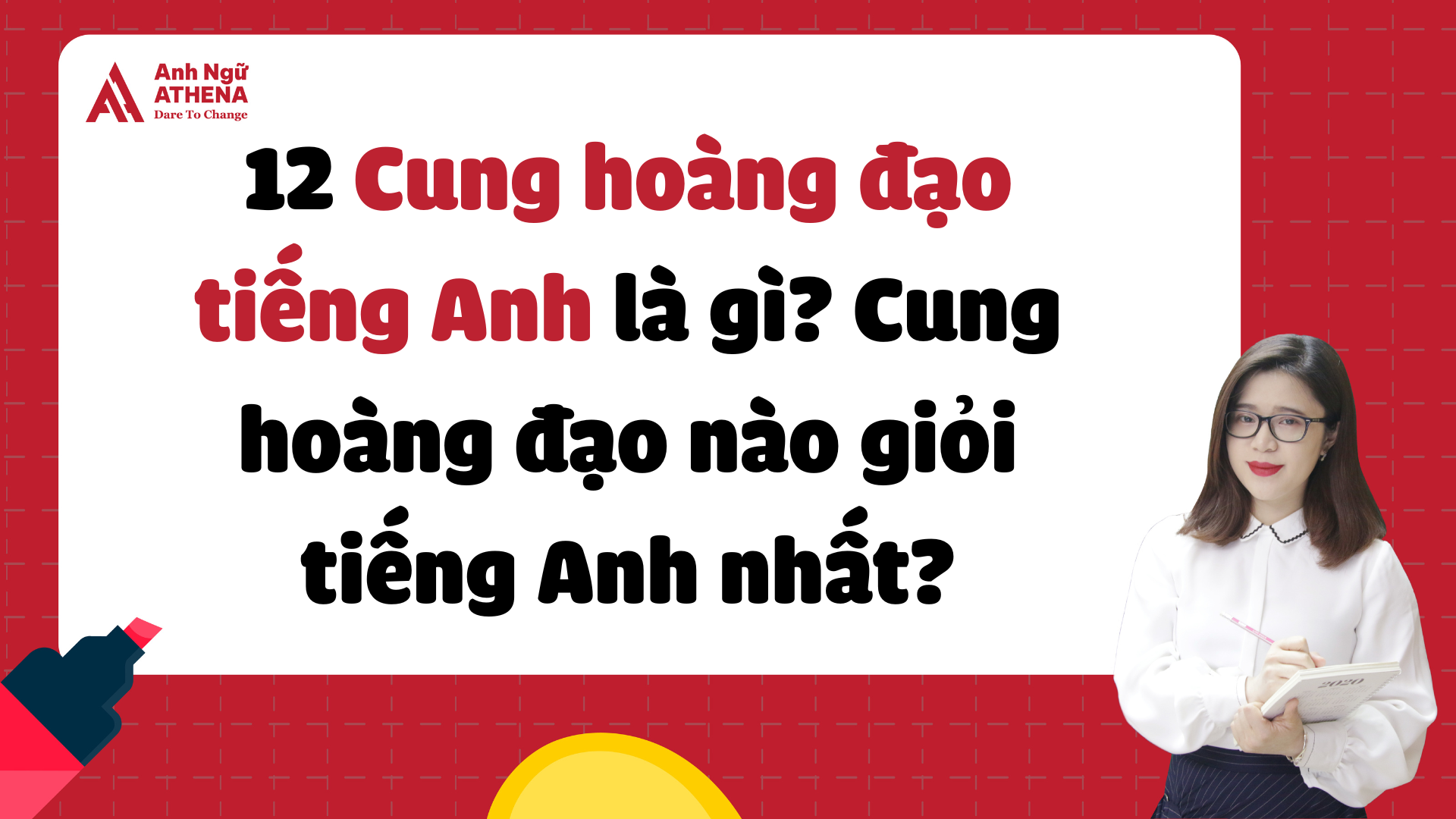






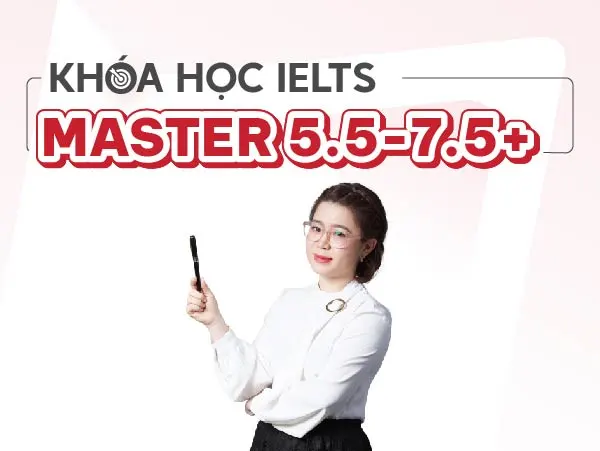
![[Cập nhật] Lịch thi TOEIC 2025 Quý 1 tại IIG Việt Nam](https://anhnguathena.vn/upload/ban-sao-cua-template-bai-viet-seo-6.png?v=1.0.0)

